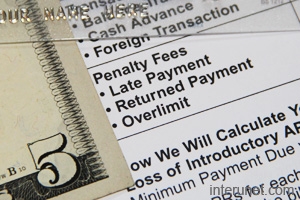
Many people fish to get a credit and sometimes envy to those who have it. However, it is uncertain who is in a more advantageous position whether those credit card holders or many other people with no credit cards or credit history whatsoever.
Using a credit card means being able to purchase things by paying with someone else’s (banks’) money. It might be very attractive and seems like beneficially option, but not always. Any amount of borrowed cash needs to be repaid with some interest in certain period of time set by the lender. If you fail to do it in timely manner, additional fees and charges may apply. There are many other risks associated with using credit cards like:
Exceed your credit limit
First time credit card applicants with no credit history normally receive very low credit limit if qualifies. Spending every month higher amount than you have on a card might increase your chances of having an overdraft. For example, if you were approved for $1,000, but made purchases on $1,500, then $500 is the overdraft.
Pay overdraft fees
Each time overdrafts occur, automatic accompanying fees might apply. Over the limit charges will be accumulated for each transaction or amount borrowed after overdraft occur depending on lenders’ polices which you can read in the cardholder agreements. Usually bank will notify you about this unfavorable situation in about two weeks unless you sing up for online banking alerts of overdrafts (if any).
Collection department of a financial institution will send you a letter by mail and possibly give a call if they see no action from your side. Just think how many small transactions you do every day and how many it might build up for 2 weeks. Commonly banks might apply fees per each dollar borrowed after taking more money than allowed from your card.
Buy more than necessary
When you pay not with cash, it might be hard to restrain yourself from buying unnecessary things. Often times when a person uses a credit card, but not a certain amount on hand, it might be difficult to remember or keep track of what is going on with the current balance whether you still have sufficient funds or your numbers are negative already (NSF).
Pay certain percentage for using the money
People might lose lots of money by repaying borrowed amounts with percentages for using it. On one hand, if you would be able to repay the balance due by the end of a month the fees might not apply except maybe monthly maintenance fees which some financial institutions charge. However, commonly people are not able to come up with large amounts of money, forcing them to pay just monthly minimum payments. This seems like small bills may turn into hundreds of dollars in overpayments.
Credit history might be ruined
If you fail to offset balances due in timely manner, your credit scores will be affected, allowing banks to borrow money with higher interest rates. You can be even denied from getting any loans even if the real need might arise like not sufficient cash amount for buying a house.
A bank might close your all accounts and make sure that you won’t open anywhere else
It might not be safe to keep your money at home. In addition, it would be definitely inconvenient to travel especially outside of the country without any bank card. But if you accumulate a huge amount in fees, charges and penalties and ignore or cannot afford to pay it off, other bank accounts might be affected by poor managing borrowed money.
